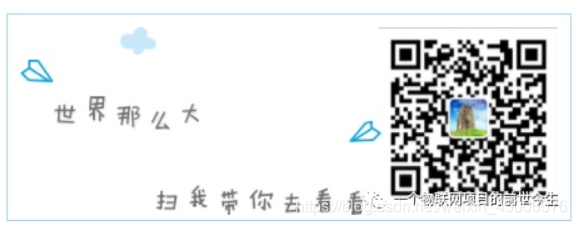本文共 2685 字,大约阅读时间需要 8 分钟。
前言
本文研究如何使用微信小程序对模块进行配网,采用业界公认配网率最高,几乎100%的配网方式:softAP配网。
一、理论基础
1.softAP配网原理
softAP方式,IoT设备工作与AP模式,手机直连IoT设备,将目标路由器的SSID/Password传过去。该方式是最传统的配网方式,不考虑终端兼容性问题,配网成功率100%。
缺点是用户操作复杂。用户需要连接IoT设备热点,然后手动输入SSID/Password。
softAP配网总体流程如下:
(1) 热点命名 softAP方式配网,模块起来一个热点LED-XXXX (XXXX为MAC地址后四位) (2) 热点配置: local_ip: 192.168.10.1 Net_mask: 255.255.255.0 Gateway: 192.168.10.1 udp_port: 20032 (3) 设备热点配网: APP--------->Device { "ssid":"xxxx", "passwd":"xxxx" } (4) 设备配网结果通知: Device--------->APP { "status":"xxxx", "mac":"xxxx", "type":"xxxx" //产品类型 } 2.微信小程序基本开发
· 微信小程序有四种类型的文件
js -------- JavaScrip文件json ------- 项目配置文件,负责窗口颜色等等wxml ------- 类似HTML文件wxss ------- 类似CSS文件
在根目录下用app来命名的这四中类型的文件,就是程序入口文件。
a. app.json
必须要有这个文件,如果没有这个文件,IDE会报错,因为微信框架把这个作为配置文件入口,你只需创建这个文件,里面写个大括号就行,以后我们会在这里对整个小程序的全局配置。记录了页面组成,配置小程序的窗口 背景色,配置导航条样式,配置默认标题。
b. app.js
必须要有这个文件,没有也是会报错!但是这个文件创建一下就行 什么都不需要写,以后我们可以在这个文件中监听并处理小程序的生命周期函数、声明全局变量。
c. app.wxss
这个文件不是必须的。因为它只是个全局CSS样式文件
d. app.wxml
这个也不是必须的,而且这个并不是指主界面哦~因为小程序的主页面是靠在JSON文件中配置来决定的
· 微信小程序组件开发
组件开发请参考微信官方介绍:
二、使用实例
1.程序分析
1.1 配网界面
以上代码具体效果如下:

1.2 js配网函数
startConfig: function(e) { console.log("start config"); const udp = wx.createUDPSocket() const locationPort = udp.bind() var object = { }; var that = this; object['ssid'] = that.data.ssid; object['password'] = that.data.password; var json = JSON.stringify(object);//JSON.stringify() udp.send({ address: '192.168.1.255', port: 20032, message: json }) // receive udp.onListening(function(res){ console.log('监听中...') console.log(res) }) udp.onMessage(function(res){ console.log(res) let unit8Arr = new Uint8Array(res.message.data); let encodedString = String.fromCharCode.apply(null, unit8Arr), decodedString = decodeURIComponent(escape((encodedString)));//没有这一步中文会乱码 console.log('str===' + decodedString) that.setData({ config_res: decodedString }) }) } 小程序配网页面点击配网后,会调用微信提供的UDP Socket接口进行配网。
微信官网示例如下:
const udp = wx.createUDPSocket() udp.bind() udp.send({ address: '192.168.193.2', port: 8848, message: 'hello, how are you' }) · createUDPSocket()创建udp socket
· bind()绑定本地接口,这个接口是随机的,暂时不支持设置port
· send()发送数据到20032端口,本文使用网络调试助手代替实际设备
3.下载网络调试助手
下载地址:
三、运行
1.设置网络调试助手
打开网络调试助手,绑定20032端口,具体设置如下所示:

2.小程序配网
设置路由器名字和密码
 网络助手收到小程序下发的信息后,发送{“status”:“ok”,“type”:“led”}。
网络助手收到小程序下发的信息后,发送{“status”:“ok”,“type”:“led”}。 四、结语
1.总结:
本节完,实际操作过程中需要注意的地方有如下几点:
(1) 电脑需要屏蔽其他网卡
2.资料获取
如您在使用过程中有任何问题,请加QQ群进一步交流。
QQ交流群:906015840 (备注:物联网项目交流)
公众号:物联网客栈,扫码关注,回复w600即可。
 一叶孤沙出品:一沙一世界,一叶一菩提
一叶孤沙出品:一沙一世界,一叶一菩提 转载地址:http://bahtz.baihongyu.com/